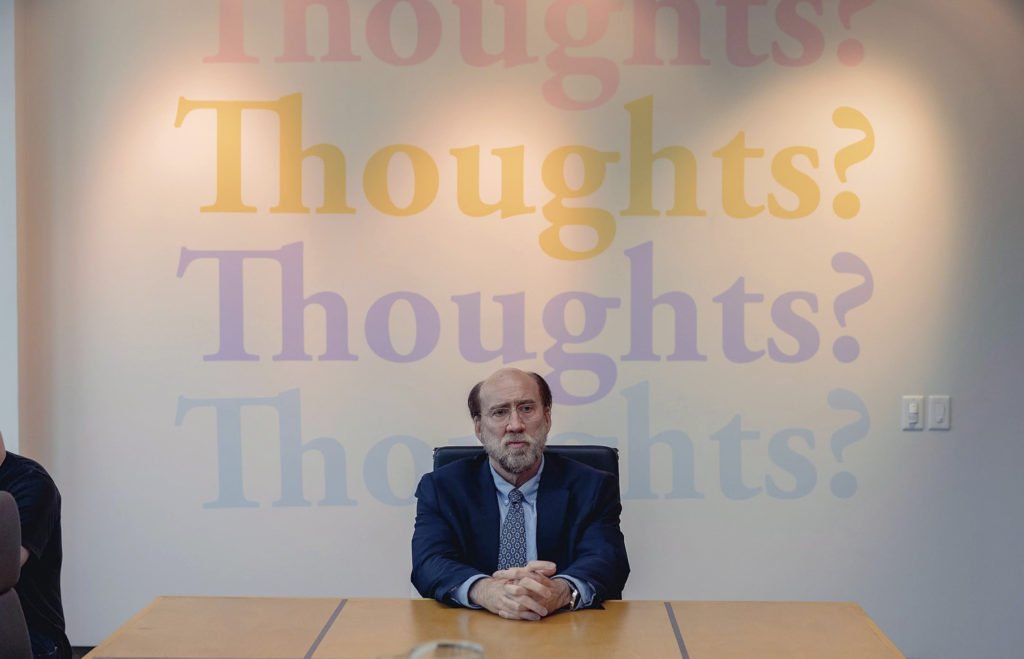On a recent (and very bachelor) Sunday afternoon I watched a Criterion Collection documentary called “The Love Goddesses” (1965), which analyzes movie starlets from the 1930s, ’40s, and ’50s and tries to decipher what made them so alluring. (The film reaches the critical conclusion that it was likely their drop dead looks and extensive gams that did the trick.)
The most interesting segment looked at Norma Jeane Mortenson, a winsome brunette from Van Nuys. Through a succession of photos, we see how this girl next door was gradually built into Marilyn Monroe while Norma Jeane was entombed inside like some pharaoh slave. Despite creating half the conversation and controversy of the 1950s, we sense that Norma was as much a spectator as the rest of us.
It reminds me of the story told about Charlie Chaplin, who placed 5th in his own lookalike contest. Fame creates the illusion of intimacy, but we only know the iconography and not the person. In other words, famous people aren’t actually famous: they just play one on TV.
In his new film “Dream Scenario,” Paul Matthews (played by Nicolas Cage) learns this lesson the hard way. Paul is a mild-mannered evolutionary biology professor who soon notices complete strangers eying him on the street with a sense of déjà vu. Paul goes on to discover he’s been appearing in the dreams of people he’s never met from around the world. Paul becomes the world’s most famous man overnight through no effort of his own, which hardly surprises in the influencer age.
It’s a miracle this is even happening, doubly so because Paul himself is thoroughly unexceptional. He’s the type that leaves no lasting impression, and even when remembered appears in your mind’s eye as blurry as every photograph of Bigfoot. His students and children don’t respect him, and marriage seems more familiar than affectionate. We only tolerate Clark Kent because he becomes Superman, but when Paul Matthews runs into a phone booth he just exits a quarter poorer.
This is Paul’s first taste of being noticed, and he responds with all the dignity of a toddler getting laughs by shouting a dirty word. He’s done nothing to earn this newfound fame yet still tries to claim the spoils. But soon the dreams become nightmares, and Paul’s life follows suit. He is now blamed for the nothing he was taking credit for, people holding him personally accountable for reverie violations he has no control over. Earlier in the film he lectures on how the zebra’s stripes only confuse predators when they stick to the herd. Paul forgets his own lesson and separates himself, learning a lion will only eat you if you make yourself the daily special.

It is an exceptional performance by Nicolas Cage, one that should be remembered come Oscar season. It could be played by no one but Cage at this point in his career, for he understands better than anyone the double-edged sword of celebrity. After early critical success and a lucrative action movie run, a series of unwise land investments required Cage to accept any job if the check cleared. His already expressionistic acting style was now servicing scripts that didn’t deserve his effort — much to the glee of the early internet. Line readings were clipped without context and often went viral, forming the bedrock lexicon of most reaction GIFs today. (No one under the age of 30 has said “bees” without trying his inflection at least once.) Cage was once an Oscar winner, now he was reduced to a meme.
And yet, that very meme status has preserved Cage’s career beyond those of other actors of his class. No one envies the caveman who falls into the glacier, but he’s the one who gets thawed out millennia later. Moreover, in a world of corporate memes and manufactured virality, Cage had grandfathered authenticity. Those same abstracted images that once made him the object of quiet pity have since made him the internet’s folk hero, or at least its wacky uncle.
Positive or negative, the attention remains divorced from the actual person of Nicolas Cage. It has been since the beginning, for like Norma Jeane before him Nicolas changed his surname from Coppola (yes, he is related to those Coppolas.) This split is somewhat explored in his recent film “The Unbearable Weight of Massive Talent,” where he plays himself in a fictional plot. There is an amusing yet heartbreaking anecdote from the set, which unlike Chaplin’s was confirmed by Cage himself.
The director instructed Cage to “just play himself,” only to call cut after a few subdued takes from Cage. The director was confused, and Cage explained that “himself” was a pretty quiet guy. It soon became clear that the director wanted him to act as the public saw him, not how he actually was. Cage complied to typically wonderful effect, but the Cage on screen was no closer to the real man than Paul Matthews or Cameron Poe or Benjamin Franklin Gates before him. The brand proved more valuable than the soul.
Like most constructs, celebrity only has power from the power we willfully cede to it. Cage didn’t become a better or worse actor throughout his career, the audience’s attitude simply evolved. Paul Matthews sows his own downfall by investing his self-worth in his newfound notoriety; it’s his own fault when it fluctuates like bitcoin.
The only consistency with humanity is that we are a fickle lot, and heaven help you if we are allowed to dictate who you are and whether you matter. I always empathized with the man who built his house on sand instead of rock: beachfront property is wonderful, at least until it suddenly isn’t.

